Schedule a talk with one of our advisors to learn more about Summitry and how we can help you get a foothold on your financial life. For career opportunities please visit careers at Summitry.
Team
Insights
Pages
- Let's Talk
- Phone / Directions
Diaries of a Bay Area Retiree: Episode 1
Oct 26, 2023
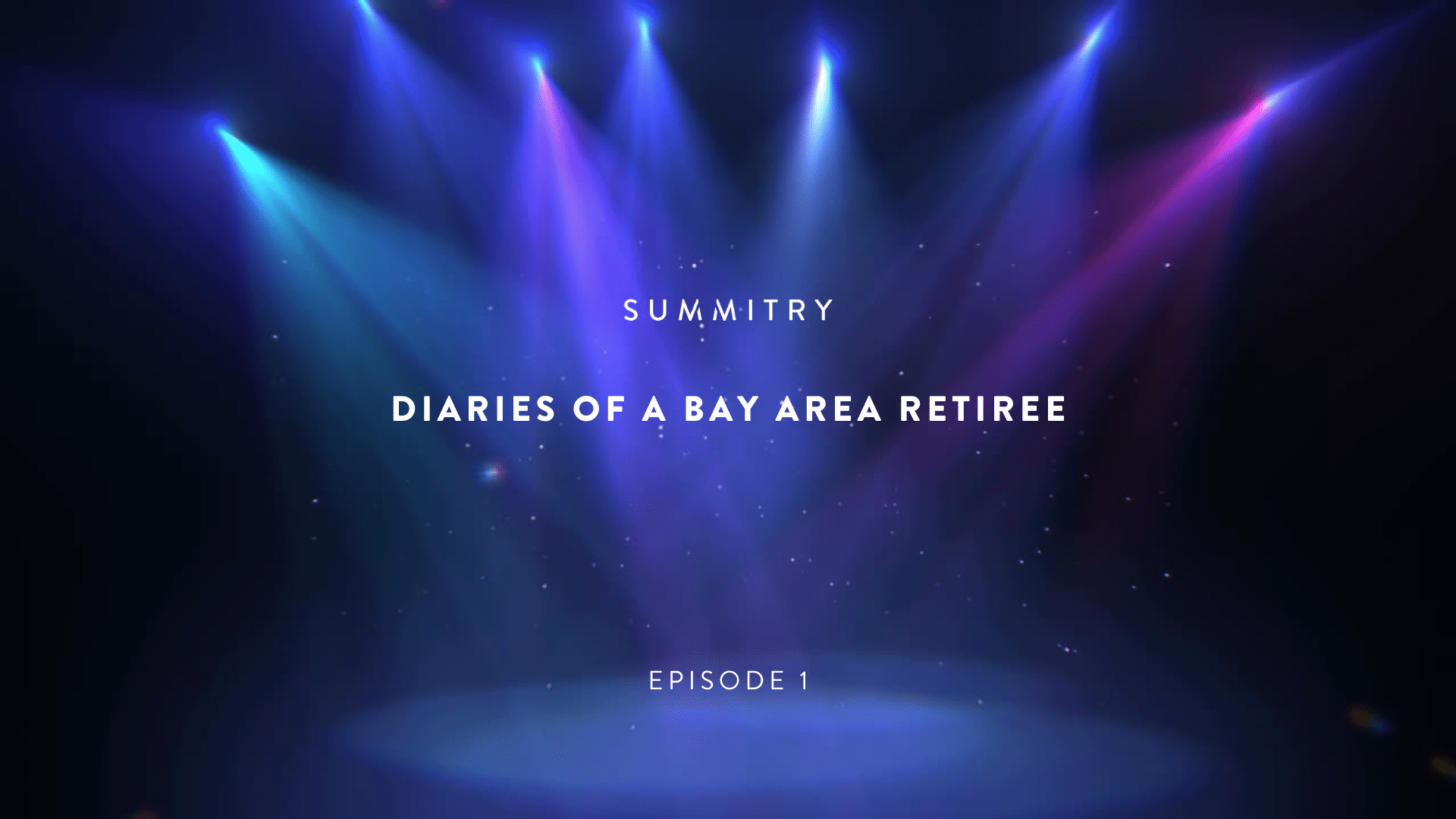
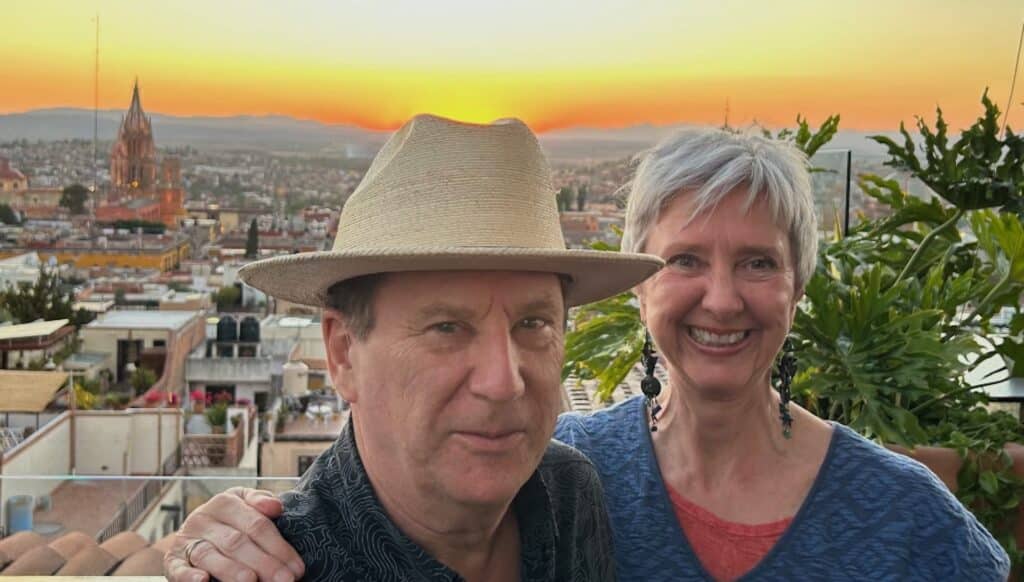
One of the most satisfying parts of my job is getting to know people and learning about their unique journey toward retirement. “Retirement” is a word we all understand as the “next phase of life” once you’ve decided to stop working full-time. But “retirement” is not a word many of us define the same way. Many people resist using it at all, and with good reason. There are stigmas associated with being “retired”. Much has been written about preparing for retirement, and it is the focus of our firm to help people feel safe and secure in their future, financially – but also emotionally. Diaries of a Bay Area Retiree is a series designed to reveal some of the real stories and insights our friends and clients have shared with us about their journey into the next chapter of their lives (see the introduction to this series here: The Secret to a Successful Retirement). We hope that you may find relevance and inspiration as you draft your own story.
Our first story is of David Richanbach, a successful former business owner with a colorful global career. David humbly shared his path toward work-optional and the lessons he learned along the way which have brought him the joy he experiences now fully steeped in “retirement”.
Turning On and Off the Lights
When asked to share how his career all began, David said, “I was the kid in the second grade who wanted to turn the lights on and off at the assembly.” David was the inquisitive child who could take things apart and put them back together again (so they would work better) and was drawn at an early age to being behind the scenes, putting on an event. He was active in theater in high school but once he graduated, didn’t see theater as a career path. The expectation from his parents was to attend college, so off he went to the University of Oregon, Eugene – aimless, with ambition but without tangible goals, and lacking guidance as his parents divorced.
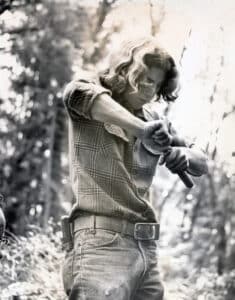 Thinking back David shared, “I was lost…What saved me, was theater. I had signed up for theater courses – theater design and production and so on. I met a guy there that I knew from high school and he and another guy were starting a little business doing lighting for rock and roll shows that came through the University. Neither of those guys really wanted to work very much. Doing those shows seemed like the shortest line they could draw between themselves, girls, and the best parties.”
Thinking back David shared, “I was lost…What saved me, was theater. I had signed up for theater courses – theater design and production and so on. I met a guy there that I knew from high school and he and another guy were starting a little business doing lighting for rock and roll shows that came through the University. Neither of those guys really wanted to work very much. Doing those shows seemed like the shortest line they could draw between themselves, girls, and the best parties.”
David was the guy that would do the work. He was good at figuring things out and had an intuitive knowledge of basic engineering. Along these lines, he said, “I knew how to hang things so they wouldn’t fall, and so I wouldn’t get hurt and it wouldn’t hurt others.”
Being in the right place, at the right time – with the right idea
About that time in the 70s, there was a sea change in the music business. Traditionally, the band traveled with the bare minimum of equipment and the promoter would provide the sound, lights, stage, etc. Bands used to split the gate (the profits from the tickets) with the promoter, but inevitably the promoter’s expenses would leave little left to split with the band. Bands were not feeling well served by the promoters who were making a lot of money.
The owner of the business decided to move to LA to essentially be in the right place at the right time, with the right idea. He would provide the lighting system and production for bands on tour at a fair price.
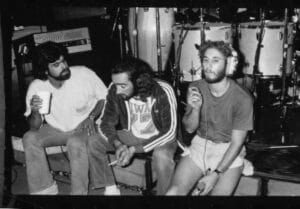 David dropped out of college after one semester to join this team. He would design and build the lighting systems and then tour with them across the country, or sometimes around the world. His first tour was with Ruffus and Chaka Khan (1975), then Fleetwood Mac, the Rolling Stones, Black Sabbath, the Dooby Brothers, BeeGees, Al Jarreau, and others. It was a fabulous experience, but at the same time, David recognized two things: he was entrepreneurial and didn’t want to work for someone else, and a life of nearly 100% travel was taking its toll.
David dropped out of college after one semester to join this team. He would design and build the lighting systems and then tour with them across the country, or sometimes around the world. His first tour was with Ruffus and Chaka Khan (1975), then Fleetwood Mac, the Rolling Stones, Black Sabbath, the Dooby Brothers, BeeGees, Al Jarreau, and others. It was a fabulous experience, but at the same time, David recognized two things: he was entrepreneurial and didn’t want to work for someone else, and a life of nearly 100% travel was taking its toll.
It was the early 80s when he quit touring, joined a production company in San Francisco, and eventually married his wife, Shelley, who he had met earlier while on tour with Fleetwood Mac. This new venture was previously a Bill Graham company which had been sold to a guy who recognized the huge opportunity for Commercial and Industrial shows – i.e., the stability and regular cadence of convention center events.
They did a hybrid of rock and roll shows and touring, and commercial / industrial shows. The first production he did was for a Case Tractor event.
“At first, I was sure I had made a huge mistake… ‘This is terrible, I’m Fleetwood Mac… I’m Rolling Stones, I’m too cool for this’,” David recalled. At rehearsals, David would hold his head in his hands, acutely aware of how “hokey” the show was, with dancing tractors and farm girls, and song and dance numbers. But then the show opened, and he saw the first audience of tractor dealers from farm country watch with glee. David recalled with delight, “Every lyric was like a cupid’s arrow through their heart.”
David had an epiphany. “It’s not for me, it’s for them and it’s PERFECT.” From then on, he loved that work. David realized he could learn who the audience was and design a show that would create that cupid’s arrow moment – a powerful event, perfect for them, the audience.
Fast forward a few years, and one of David’s clients was Apple Computer.
“The first time I met Steve Jobs, I was doing a product launch, one of their first, at Moscone Center… and this skinny guy comes and sits down on the sound console, and I threw him out. ‘What are you ‘f-ing stupid’; that’s a sound console, you don’t sit on that!’ Later at sound check, the executives come in for rehearsal and it’s the same guy. But he introduced himself and he said, ‘No, you were right, I was wrong.’ He totally respected that I was not going to let anything endanger my job of putting on a good show, even if the problem was him!”
David continued to put on product launches for Apple as a client, and eventually, Apple recruited him as their first Event Marketing Manager.
Creating Your Own Job Description
On his first day at Apple, David asked his hiring manager what exactly his job entailed. After a long conversation in which the manager provided no specific description, he suggested that David leverage the open-door policy and schedule lunch with Steve Jobs or John Sculley. At lunch with John, he was asked “Why are we here?”
David recalled being “super nervous”. He asked John what he believed the event marketing manager does. John replied by returning the question to David. David talked non-stop for an hour. They finished, got up to leave, and John said something to the effect of “sounds like you got it.”
David admitted that years later, the story is clear to him, but he has no recollection of what he actually said about his job. He left the lunch, returned to the office, and began writing Apple’s event marketing strategy.
At Apple, David produced some fantastic shows. It was a running disagreement he had with management where David would refer to the ‘show’ and management would correct him, “It’s not a show, it’s a marketing event.” But David always wanted that arrow to go through the audience’s heart and that meant creating and producing an experience – not just executing an event.
David was on a fast track for Apple management. He was being pressured to move away from event marketing to other areas of the business. Eventually, he was offered a higher-level position in Apple France. This was one of those life decisions David and Shelley would make only after many sleepless nights and long, challenging discussions weighing all of the potential impacts on both their careers and on the family. Sure, the idea of moving to France was exciting, but David did some soul-searching, with Shelley’s input and guidance. He remembered thinking, “I could stay on this track and be an important, significant figure in Apple management, but I didn’t want to do any of the work that didn’t result in an event, in a live performance. So, I quit Apple and went back to show business.”
David said: “This was but one of many inflection points in career, family and purpose that were loud, seductive, and exciting … that had to be weighed against quieter life-changing choices, bravely voiced by Shelley, choices that involved sacrifice and commitment to family and or relationship over unlimited pursuit of career.” In hindsight David and Shelley know it was the brave articulation of those choices and the willingness to slow things down and really consider the future they created – imagining the future that they truly wanted – that defined their quality of life for that moment and the future.
David left Apple, returned to the previous production company for a short period as COO, then moved on to help market another company. He was recruited to help another company create a plan to drive them to a respectable profit. David created this plan to get the company to $12M of revenue with specific margins. He recalled at the time making something close to $100K a year and it was at this point he had another epiphany. “Either I’m completely full of shit when I think I can get $12M in revenue going for this company, or I can actually do it, and if I can do that then I should be able to at least get the $100K for myself without all of the heartaches. So, I quit and started my own company and quickly eclipsed the goals I had set for myself.”
The Role That Ego Plays Planning for Retirement
David professed that he was surrounded by incredibly successful people his entire career. Though they inspired him and helped and influenced him in business, he recognized that they often had lives he did not want. They were always chasing a bigger number, with the goal of making more money, among other egocentric goals. That was not what David wanted. His goals were centered around a realistic, achievable dollar figure to retire with, owning his home outright, not having any debt, and pursuing interests beyond his work.
“My early professional life was full of super successful people who had lives that I did not want. They were the go-to guys that Madonna or the Stones would call when they wanted to go on tour. But at the end they were alone. If I wanted to have fullness in my life, I needed to develop self-awareness about my goals. For some people, they were always chasing a number or the status of the next project or gig.”
David early on had set goals that would have him reach retirement at age 50. He achieved his monetary goal without issue, but when the time came, he had other challenges. His company had begun to fall apart. He was having struggles with partners and lacked the bandwidth or business acumen to resolve them effectively. So rather than retire, he continued to work.
“I needed to keep working because I needed to prove that I could. My company unraveled and my ego took over, so I worked for another 12 years. The validation that I received from work was the salve to put on my wounds.”
Shifting the Center of Influence
Being someone who enjoyed and craved the validation of an audience, David recognized that he would need to seek a similar validation from a different energy source once he stopped turning on and off the lights. It begins by “drawing inspiration from watching and observing the journeys of others.”
Making what we believe is a meaning-filled statement, David shared, “I didn’t want to get to a place where I just decided to stop working and then there would be a void. I wanted to crowd work out.”
Crowd work out. This is not a statement about being busy. We all know people who suggest that retirement will be a long stint of waking up late, daily golf, catching up on reading. We have also all read the articles and seen the Harvard study about the human need to have purpose and meaning in one’s life: engaging relationships, a sense of community, etc. While true, the individual question one must ask – and which is not easily answered – is where to find that purpose and how long will it take to create it if it needs to be created. In David’s case, he began pursuing other interests while working, pairing back on the clients he would take on, and spending more and more of his energy elsewhere. Eventually, the day came when asked over drinks, “‘What’s the next event?’ And I confidently said, ‘There isn’t a next event.’”
David had successfully found the energy and meaning to replace the previous energy and meaning.
Learning How to Be Rather than Do
His whole life was filled with achievement by doing things. Now, David focused on developing skills to find satisfaction and self-worth intrinsically.
David counts himself as lucky in terms of temperament. A college dropout, he was self-driven and a self-professed “life-long learner” and a voracious reader. One of the hardest things David claimed to have to do when embarking on retirement was taking stock of how he really felt in his heart, considering he lived his life mainly in his head. He found an authentic curiosity to ask himself “how do I feel?” and then recognized that he wasn’t good at having feelings.
A question to get at the heart of things, David asked himself, “How do I get from “successful” to “happy”? I know how to self-soothe with great food, fine wine, interesting friends, great projects; but how do I find happiness in terms of fulfillment? Being open to that allowed me to pursue it.”
David had a successful career identifying how to make other people happy, but determining how to find happiness for yourself is entirely different.
Happiness is Not Structural, It’s Philosophical
When asked what it means to be rich, David’s answer is, “To want less than you have.” But his meaning is much more nuanced and has more to do with being happy than with having wealth. It’s not about bargain hunting, he notes. It’s about finding “a place in your mind, body, and heart where you can live and be happy.”
 David considers himself lucky to have made it to this point in his life with a wife who he likes, as well as loves, and wants to pursue a deeper relationship with – and that this is reciprocated. An unfortunate fact is there are a number of couples who find themselves in their 50s and 60s unhappy and lacking interest in pursuing happiness with their partner. David also enjoys the opportunity he has now to get to know his adult children as people, rather than responsibilities, and have them get to know him.
David considers himself lucky to have made it to this point in his life with a wife who he likes, as well as loves, and wants to pursue a deeper relationship with – and that this is reciprocated. An unfortunate fact is there are a number of couples who find themselves in their 50s and 60s unhappy and lacking interest in pursuing happiness with their partner. David also enjoys the opportunity he has now to get to know his adult children as people, rather than responsibilities, and have them get to know him.
Perhaps a good way to conclude would be with a poignant comment from David that sums up nicely the value planning, when done purposefully, can be for creating happiness: “The number of things you shouldn’t do is infinite. What you should do is finite. And it’s up to you.”
We at Summitry actively foster the connections that Bay Area residents crave as they approach and enjoy retirement through community building events. Our clients often first come to us when they’re in need of a financial plan or dealing with some life changing event. But what they gain is a partner to help them achieve goals, leading up to and throughout their retirement years, that will enrich their lives more fully. Check out a recent speaker series, featuring Tracy Colwell, a Senior Fellow at Lockheed Martin as he shares stories of his recent work with project Artemis.
Do you have a story to share about your road to retirement? We’d love to hear it.
GET THE NEXT SUMMITRY POST IN YOUR INBOX:
MORE INSIGHTS AND RESOURCES
Let's talk
Schedule a talk with one of our advisors to learn more about Summitry and how we can help you chart a path for your financial future.
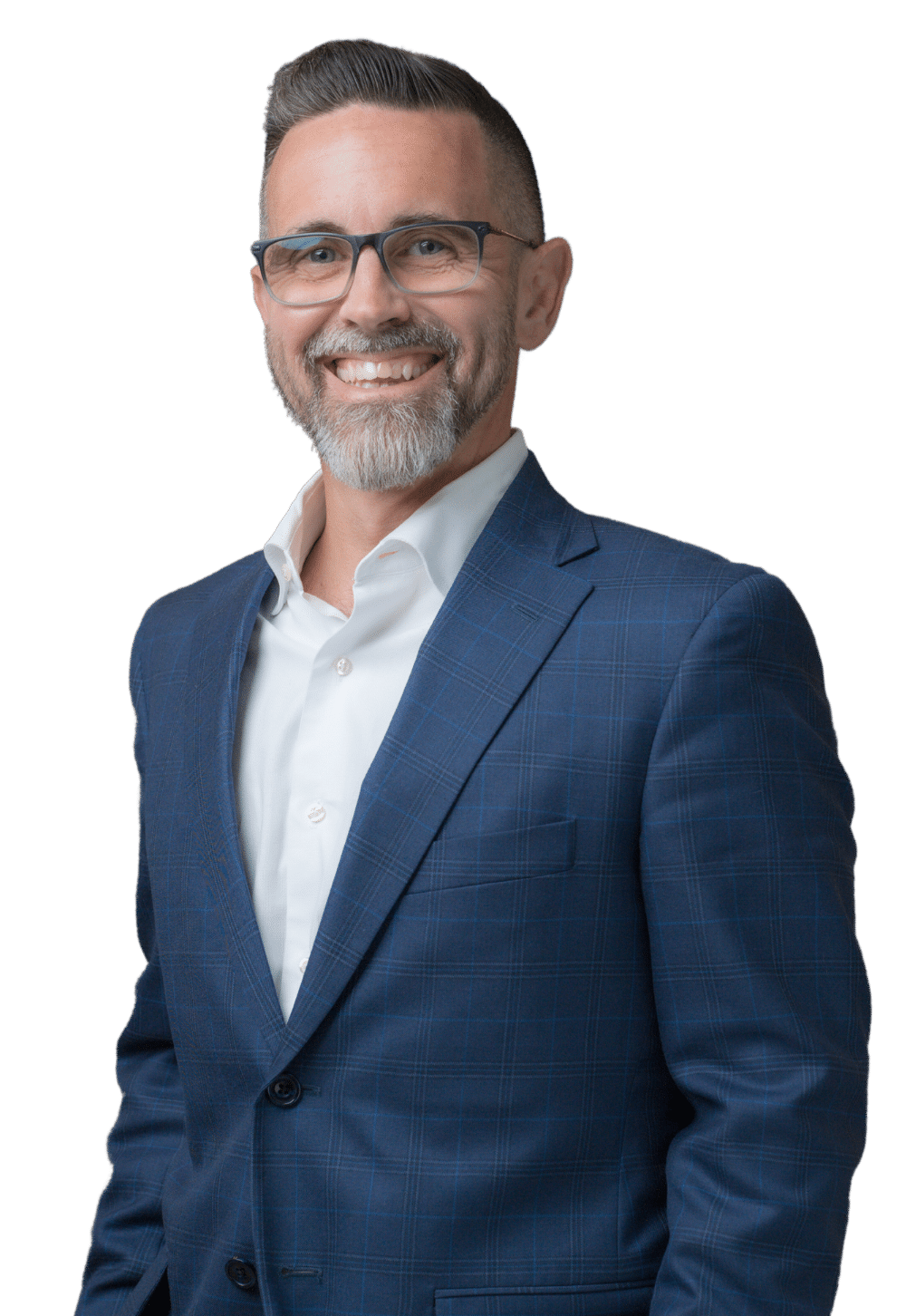
Joe Martin, FBS®
Chief Client Experience Officer


